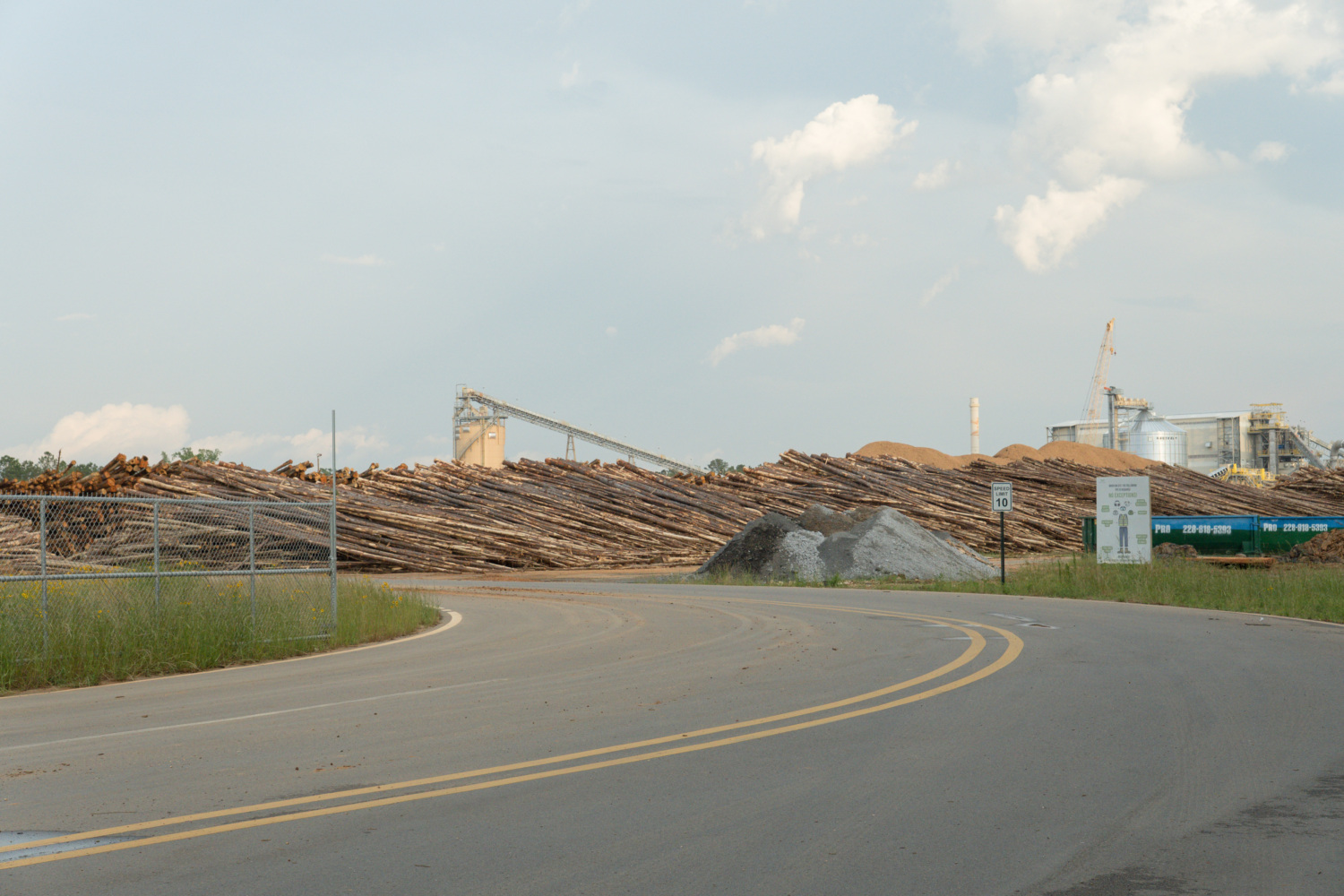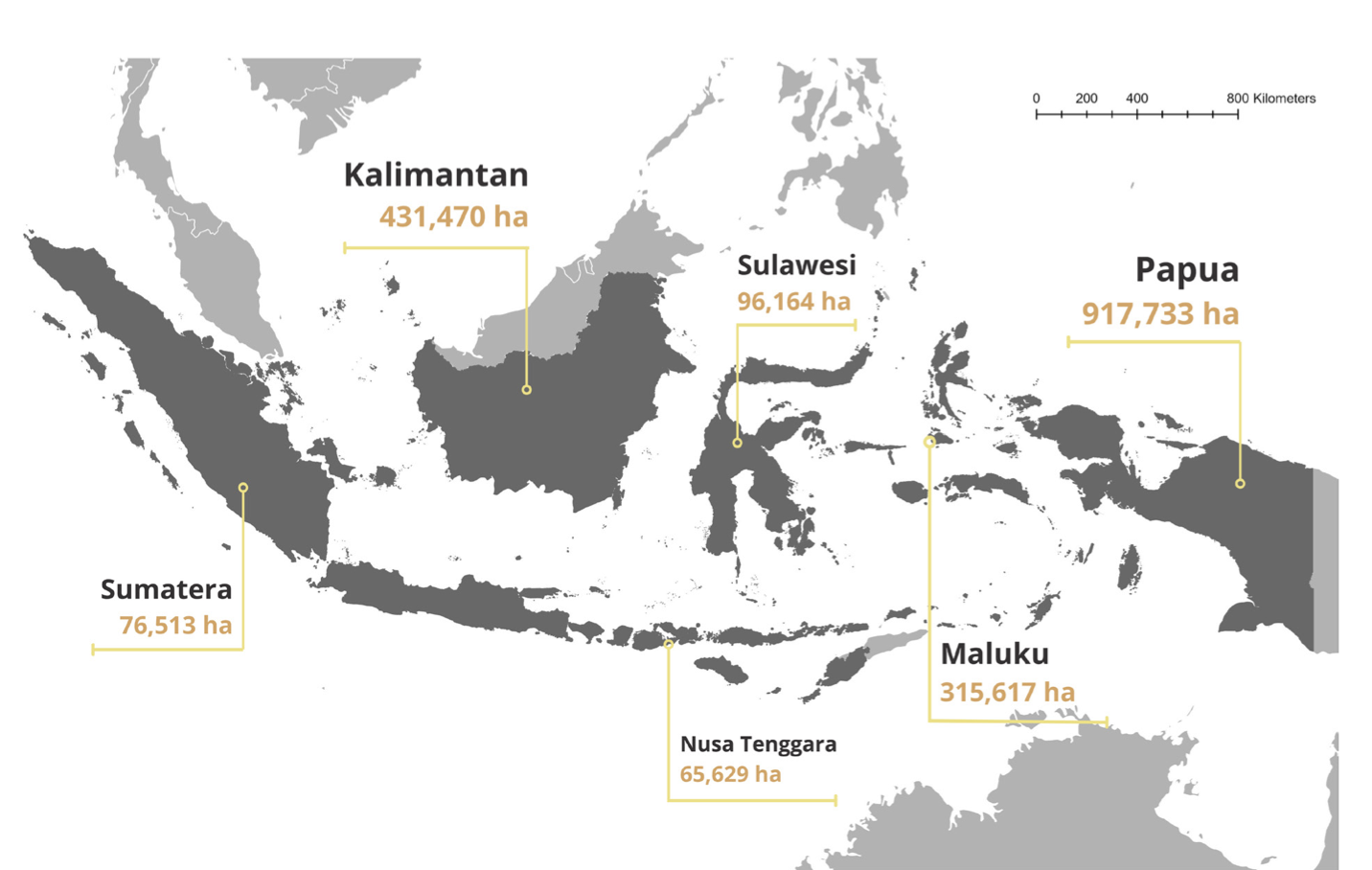
Japanese Financiers Address Big Bad Biomass
By Katie Yared and Roger Smith
June 2025 update: read an evaluation of Japanese financial institution’s woody biomass policies here
Drax and Enviva, the largest pellet producers in the world, are counting on continued strong Japanese demand to justify expanding wood pellet production, while cutting down valuable forests and harming communities in the US Southeast and Canada’s British Columbia in the process. However, several recent developments signal that change is underway.
SMBC’s New Policy
In April 2024, Japanese SMBC Financial Group, parent to SMBC, one of Japan’s three megabanks, just updated their sustainability policy (English, Japanese) to address wood biomass. It came after Japanese and global environmental advocates challenged Japanese financiers over the high carbon emissions, and harms to forests and biodiversity from Japanese biomass imports.
This updated policy will not support new biomass projects that use fuel which derive from primary forests. The new SMBC policy defines allowable biomass as “wood that is not derived from virgin forests, including unused wood and sawmill residues, and that can be verified as not violating the human rights of local residents, etc.” [translation of the Japanese original policy]. This may impact sourcing from North America as pellet production in British Columbia is almost entirely directly or indirectly sourced from primary forests. Furthermore, pellet production in the US Southeast violates the rights to clean air and water of vulnerable communities, evidenced by the many legal violations documented here and health issues faced by people living near pellet plants.
There are three particularly noteworthy aspects of the policy:
- First, the policy does not rely upon sustainability certifications, a loophole often included in other policies that allow for logging, even clearcutting, of ecologically valuable forests and increased greenhouse gas emissions if a sustainability certificate is acquired. These certificates are designed to help promote more sustainable forestry practices, but have nothing to do with burning tress for energy.
- Second, the policy includes “residues” under materials from primary forests they are not willing to accept. Just as residues from illegally logged timber are still illegal wood, waste from cutting down old growth and other primary forest is still unacceptable support for such unsustainable practices. The use of “residue” is another frequently used loophole in other policies that allows companies to redefine whole trees and even whole forests with low commercial value as “waste” and profit from damage to primary forests. Declaring all wood derived from such forests as a no-go for biomass is core to a meaningful biomass policy.
- Third, the policy covers both standalone biomass power plants and coal plants that cofire coal with biomass. Japanese companies cofire wood pellets with coal because current regulations do not count wood pellets cofired with coal as having carbon emissions (at the smokestack), providing an opportunity for coal plant operators to run their plants for more years.
It is not yet clear how enforcement and compliance will be carried out, but if this policy is strongly implemented, it would set precedent as the strongest biomass sustainability policy in Asia. Full implementation of this policy and adoption by other companies would likely rule out the sourcing of wood pellets from British Columbia where primary forests are being cut down and made into pellets.
Megabanks and Others Follow SMBC’s Lead With Biomass Policies
Another Japanese megabank, Mizuho, stated they added a biomass policy due to risks “of large-scale deforestation and peat land development” from the production and importing of biomass from across the world. Identified risks include high lifecycle GHGs related to deforestation, peat development and transportation, in addition to societal and environmental impacts including the loss of biodiversity. Business partners have to do risk assessments for these areas and if they are not adequately addressed they will not make investment or loans. This new policy sends a message to biomass producers that Mizuho considers deforestation and harm to communities as an unacceptable risk, however the policy is limited to biomass-only power plants. A strong policy should cover power plants that burn both coal and biomass.
A third Japanese megabank, MUFG (Mitsubishi UFJ Financial Group), also adopted a sustainable biomass policy. It stated they recognize biomass as a form of clean, renewable energy but are aware of the need to consider environmental and societal impacts from production and manufacturing. They state that for new finance for biomass power plants and fuel production they will check the status of the customer’s implementation of environmental and social considerations including food vs fuel conflicts, sustainability, and lifecycle GHG emissions.
Other institutions have also implemented biomass-related policies, including:
- Meiji Yasuda life insurance who “will not engage in investments or loans for…new construction or renewal of biomass power plants that use palm oil (palm shells) or imported wood chips as fuel.”
- Concordia Financial Group who is limiting green bonds to “sustainable feedstock or waste.” This includes consideration of RSPO certification for palm oil, but it is unclear what woody biomass they consider sustainable.
- Yamaguchi Financial Group whose green bonds for biomass power generation will be “limited to raw materials derived from sustainable or waste.”
We expect other institutions to continue to follow with sustainable biomass policies.
Other Headwinds for the Wood Pellet Industry
Appetite for new biomass is drying up as corporate commitments are restricting the types of biomass Japanese companies are willing to fund or use.
Additionally, wood pellets are becoming less and less attractive as an energy source because wood prices are relatively high. Japanese buyers are squeezed between the devaluation of the yen, which dropped 25% relative to the US dollar since the biomass boom in 2018 and the lowered incentives from the revised feed-in tariff and “feed in premium” subsidy in Japan. This makes it difficult to justify increased biomass usage and even to continue business as usual, with cases of smaller biomass plants having to suspend operations due to high fuel prices.
Furthermore, the world’s largest pellet producer, US-based Enviva Corporation, recently entered a bankruptcy restructuring after taking on substantial debt in order to double production to meet Japanese demand – all while having higher than anticipated production costs. With the diminished buying power of Japanese customers due to the drop in the yen, they likely had difficulty renegotiating long-term pellet contracts with Enviva. Enviva continues to face stiff opposition from impoverished communities near their plants in the southern US who are fighting their expansion. Enviva’s financial woes forced a halt to construction of a new massive pellet plant in Bond (Stone County), MS and have delayed construction for the Epes, AL mill, both of which were planned to serve Japanese demand.
Moving Forward
SMBC’s decision is timely as the growth of Drax and Enviva as pellet producers were predicated on increased Japanese pellet demand. Other major financiers in Japan and globally should follow the lead of SMBC and implement stronger sustainability policies regarding biomass sourcing to prevent further destruction of primary forests, harm to communities near pellet plants, and worsened climate change.
